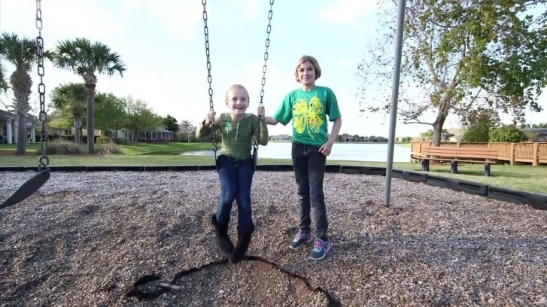Apr 05
Stem cells offer hope for autism
Rockledge, Florida (CNN) - Gracie Gregory smiles beneath her brilliant blue eyes. She's sitting on her mother's lap, next to her older sister, Ryleigh, who boasts about Gracie being "very sweet and kind."
It wasn't always so. Just a couple years ago, Ryleigh, 11, was scared of her sister when she'd throw tantrums and screaming fits.
"She would've fought and kicked," Ryleigh says, noting that it wouldn't have been possible to sit like this next to Gracie.
Why was she scared of her sister? "Because of the kicking." Gracie, 7, interrupts: "I don't even remember it." "We do," says her mother, Gina Gregory. Gracie has autism, a condition that affected nearly every aspect of her family's life after she was diagnosed at 2. But a new study is offering hope for the Gregorys and families like them.
Gracie was one of 25 children who took part in the first-of-its-kind study at Duke University in Durham, North Carolina. The goal: to see whether a transfusion of their own umbilical cord blood containing rare stem cells could help treat their autism.
The results were impressive: More than two-thirds of the children showed reported improvements. A larger second trial is underway, one its researchers hope will lead to long-term treatment for children with autism.
Skeptics say there are too many unanswered questions to get excited. Even Duke researchers acknowledge as much. The initial trial, published Wednesday in the journal Stem Cells Translational Medicine, was a safety study, not a controlled, double-blind study with definitive proof of positive results. This study was open-label, meaning everyone -- the doctors and the families -- knew that the therapy was being administered.
But for the Gregorys, the change in their daughter has been monumental.
Click here to read more from the original article in CNN news.
Click here to read more from the original article in CNN news.
